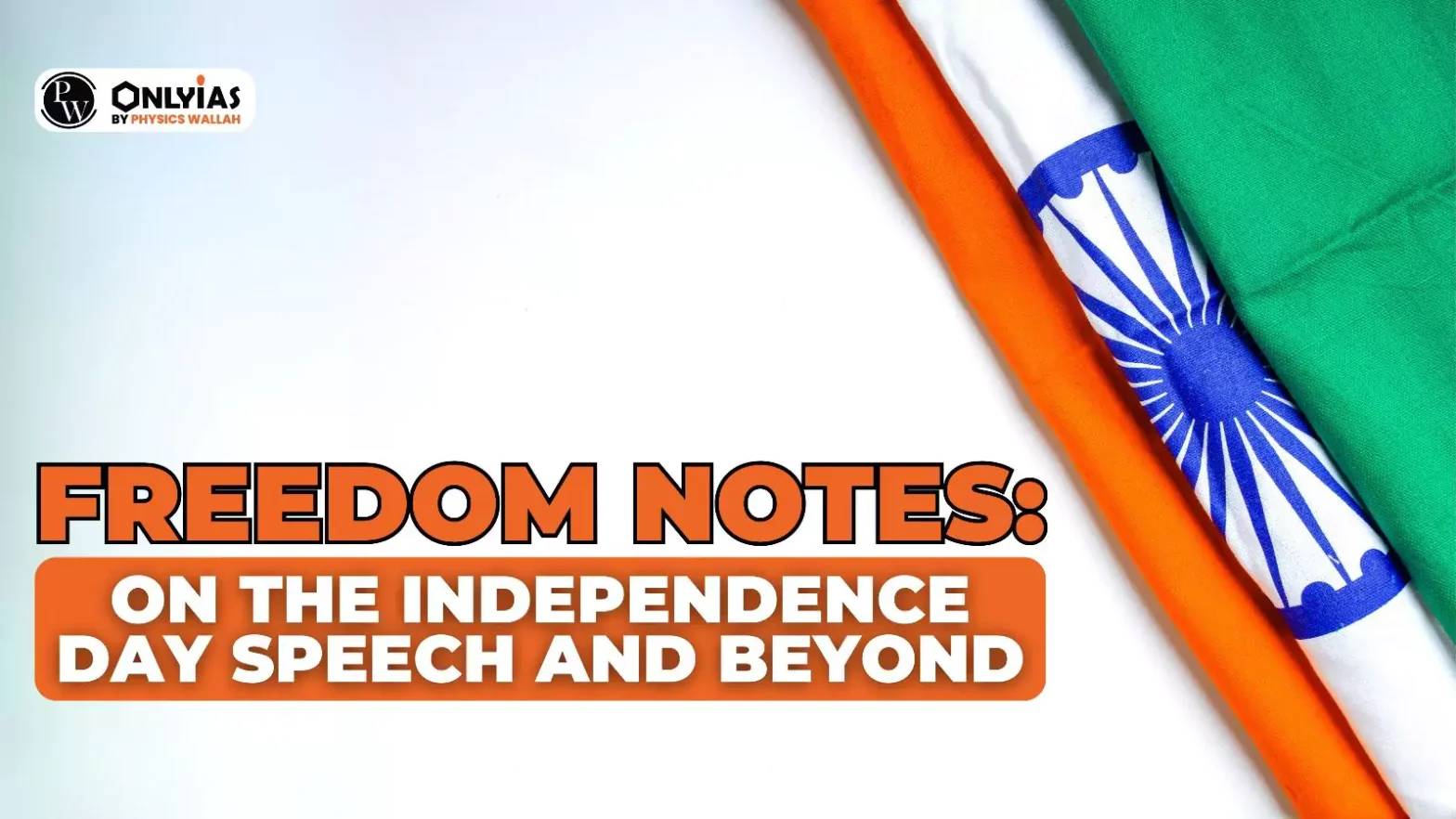Prime Minister Narendra Modi’s first Independence Day speech in his third term in office — his eleventh since 2014 — was a significant address, signalling continuity and authority as he now leads a coalition government. During his speech, the PM highlighted several key issues and proposed ways to address them.
Independence Day Speech- Key Issues Highlighted by the Prime Minister
- Uniform Civil Code (UCC): The PM called for the implementation of a Uniform Civil Code, describing it as a secular measure agnostic of religious faiths.
- One Nation, One Election: The concept of ‘One Nation, One Election’ was proposed, aiming to synchronise elections across the country to streamline governance and reduce costs.
- Women’s Safety: In light of recent incidents, including the sexual assault and murder of an on-duty doctor in Kolkata, the PM stressed the need for increased safety measures for women.
- Economic Stability and SEBI Allegations: The PM raised concerns about attempts to destabilise the country’s economy, referencing a report by the U.S.-based Hindenburg Research that accused the head of SEBI of conflict of interest.
- Dynastic Politics and Youth Participation: Criticising dynastic politics, the PM suggested that one lakh first-generation young leaders should enter electoral politics at various levels.
- Security of Minorities in Bangladesh: The PM expressed hope for peace in Bangladesh and raised concerns about the safety of the Hindu minority community there.
- Achievements in Manufacturing and Anti-Corruption Efforts: Reviewing his two terms in office, the PM highlighted India’s progress in manufacturing and its fight against corruption, while acknowledging ongoing challenges.
Enroll now for UPSC Online Course
Analysis of the Key Points
- Uniform Civil Code (UCC): The desirability of a Uniform Civil Code is not in question, but the government’s approach towards its implementation is contentious. A UCC in a diverse country like India requires consensus building, and should not be used as a tool to target specific communities.
- One Nation, One Election: While the idea of ‘One Nation, One Election’ could streamline governance, it poses significant practical challenges, including the need for constitutional amendments and broad political consensus.
- Women’s Safety: The emphasis on women’s safety is crucial, but it requires more than just rhetoric. Concrete actions and stringent enforcement of laws are necessary to create a safer environment for women.
- Economic Stability and SEBI Allegations: The government’s response to economic criticisms and allegations, such as those against SEBI, must be transparent. Equating criticism with attempts to destabilise the nation is not quite right. As criticising the government does not equate criticising the nation and accountability must be there.
Conclusion
Independence Day serves as a reminder of the need for a governance approach that balances continuity with inclusivity and consultation. While the issues raised by the Prime Minister are important, their effective implementation requires a more balanced and consultative approach. The government must work towards building consensus on sensitive issues like the Uniform Civil Code and ensure that criticism and accountability are seen as fundamental aspects of democracy, rather than threats to stability. The true essence of freedom lies in holding the government accountable through a participatory political process.
![]() 16 Aug 2024
16 Aug 2024

